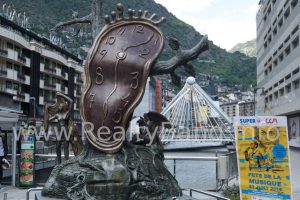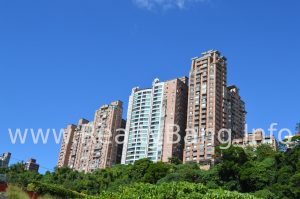Real Estate Purchase Process in Argentina: Foreigners can purchase property without foreign restrictions. A CDI number must be obtained from the government before purchasing. Also, the Argentine representative must be appointed by non-residents to pay property tax for them.
Middle and high-end real estate in Argentina (for both local or foreign) is always sold in US $ cash. This is due to the volatile Argentine peso. Middle and high-end properties cover the northern suburbs and most areas of the city that invest in foreign countries, farms, and interiors of any tourism-related areas.
Bringing in US dollars is not free. Withdrawal of money from the bank is taxed. Furthermore, one can withdraw only in Argentine pesos. A buyer must purchase US dollars along with Argentine dollars, which are accepted in real estate transactions.
According to Mrs. Reynolds, a reduction in the value of money by about 0.8% –1% is possible when undergoing the official system. If someone wants to go through a private broker, she says it is normal to pay around 2%.
Once the purchase price of the property is agreed upon, the buyer is expected to make a down payment, typically around 30% of the purchase price. This trust is organized by a real estate agent.
The down payment serves as security. If the buyer exits the transaction, the down payment is non-refundable. If the seller returns, the seller must pay the buyer twice the amount of the down payment.
JUST KNOW ABOUT Real Estate Purchase Process in Argentina:

The taxes involved in the purchase of the property are levied by local authorities such as the provincial and municipal governments. Each of the 23 provinces and the government of Buenos Aires City has the right to direct its tax laws on certain economic activities within its jurisdiction. It explains the different categories of tax rates in the purchase of the property.
The only document required by a foreigner is a tax ID obtained from a notary public which, in turn, would require a power of attorney to do so.
In recent years many foreign investors have acquired farming and live-stock land in Buenos Aires as well as buildings in urban areas. Most real estate is held as freehold property; Long term leases are uncommon.
The entire process of registering a property takes about 55 days to complete.
Transaction cost table
The cost of a round journey transaction includes all the costs of buying and developing the property – attorneys fees, notary fees, registration fees, taxes, agents’ fees, and more.
Real Estate Agent Fee:
The real estate agent’s fees are about 3% to 4%, plus 21% Value Added Tax (VAT) in the city of Buenos Aires or Centro. In the suburbs of Buenos Aires, real estate agent fees are 4%, plus 21% VAT, evenly divided between buyer and seller.
Notary fees:
The deed must be executed before the notary public. The notary should notify the party if there is a problem with the title of the property. Notary fees are generally negotiable between 1% and 1.50%.
Registration Fee:
The registration fee and associated costs are usually about 0.20% of the value of the property.
Transfer Tax:
Transfer tax is paid only when the transaction is not subject to capital gains tax. The transfer tax is 1.5% of the property value, paid by the seller. However, this tax does not apply if the resident seller is selling his main residence and commits to purchase another property within a year.
Stamp tax
Property sales contracts are subject to stamp duty at an average rate of 3.60% by the provincial government. Each of the 23 provinces and Buenos Aires City (which is autonomous from the province of Buenos Aires) has the right to set the level of stamp duty. Stamp duty is usually divided between buyer and seller.
Why are people more willing to buy real estate in Argentina?
In South America, Argentina is located to provide the best of many worlds. From a cost-of-living standpoint, you can expect the same quality of life development in less money to suit the rest of Central and South America.
To begin with, the country’s biodiversity and geography are breathtaking. From snow-capped mountains to vast grasslands, subtropical forests, massive snow glaciers, Argentina can be the most thrilling for outsiders. Very few countries on Earth have this degree of natural diversity within a range.
Looking for some culture and great food? In major cities. Whether it is the capital of Buenos Aires, the food and wine mecca of Mendoza, or the University of Cordoba, you will find magnificent bars, nightclubs, museums, restaurants, and historical attractions at every turn. There are a lot of former patrons here, so it is not difficult to find a like-minded community.
Now is the time to buy
It is one thing to be known as a tourist, but buying a property abroad requires a high level of commitment. If you are debating whether to invest in international property or not, there are some things you should know about Argentina.
Argentina Security
The Global Security Index is consistently above the rest of Argentina for peace, safety, and security – and ahead of the US at the same time. The US State Department recommends ‘general precautions’ throughout the country.
You will feel quite safe in most parts of Argentina regardless of the duration of your stay. In most cases, common sense precautions require all of you to stay out of trouble.
Petty street crime can be a problem in large cities, such as in many parts of the world. This can include bags, phones, or expensive jackets from behind chairs in outdoor restaurants, pickpocketing in public markets or around bus stations, late-night walks in dodgy entertainment districts, theft of passports, and more.
Bag-snatching by thieves on motorcycles is also something to be aware of on busy roads, especially in tourist areas. Put Your Guards at Risk – Vigilance is the best defense against opportunistic criminals who may target your camera, money, or other valuables.
You may know better ideas about REAL ESTATE INVESTMENT IN EGYPT.




